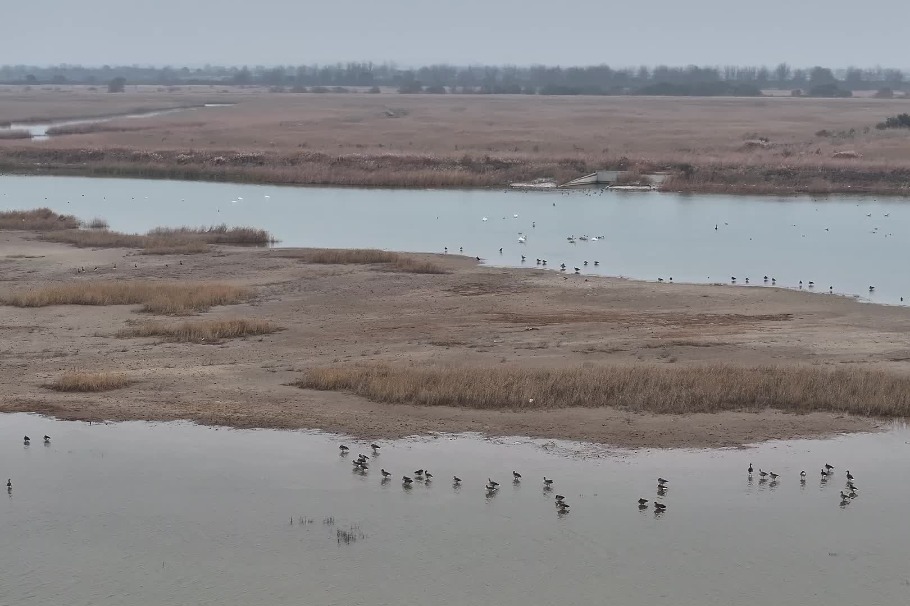Warming threatening penguins in Antarctica

Global warming may be having an impact on the populations of two penguin species in Antarctica, a Chinese scientist on the southernmost continent said.
Dai Yufei, an associate researcher at the Polar Research Institute of China who is working at China's Changcheng Station, or Great Wall Station in Antarctica, told People's Daily recently that the population of Adelie penguins on nearby Ardley Island has been declining, while the number of gentoo penguins is increasing.
Ardley Island is internationally recognized as part of the Antarctic Specially Protected Area near King George Island, where the scientific research stations of multiple countries are located. Dai said that over the past couple of weeks — summer in Antarctica — they only observed some 200 Adelie penguin nests there, whereas gentoo penguins had about 8,000. In the past, there were many more Adelie penguins, he added.
A nest of penguins usually consists of one male and one female adult and their eggs or hatchlings, he said.
Dai further explained that in high-latitude areas of Antarctica, in general, only Adelie and emperor penguins survive and reproduce. Gentoo penguins, which are thriving, mostly live in sub-Antarctic areas.
Dai said he believed such changes can be partly attributed to climate change and global warming. He said that the decreasing population of Adelie penguins may be due to its own weak adaptation capability to the change, while gentoo penguins' southern expansion may have squeezed the space that Adelie penguins used to enjoy.
Experts said that birds and ocean mammals are very sensitive to changes in the environment, and the trend of their population distribution and shifts can reflect the impact of global climate change on Antarctica's ecology.
A 2019 paper by researchers from the School of Earth and Space Sciences at the University of Science and Technology of China concluded that the enhanced westerly wind triggered the migration of penguins over the past 1,000 years on Ardley Island. Penguins began to abandon their settlements on the west side of the island about 1,000 years ago and built new settlements on the island's east side, where the wind was milder.
- Guangdong Party secretary urges swift action on Zhuhai vehicle tragedy
- China and Peru unite to save endangered plant
- Over 600 global representatives to attend world vocational conference in Tianjin
- Over 1,600 national standards set up to enhance food safety
- Int'l students showcase business acumen at Shanghai competition
- KFC Guangzhou celebrates 1,000th restaurant milestone





































